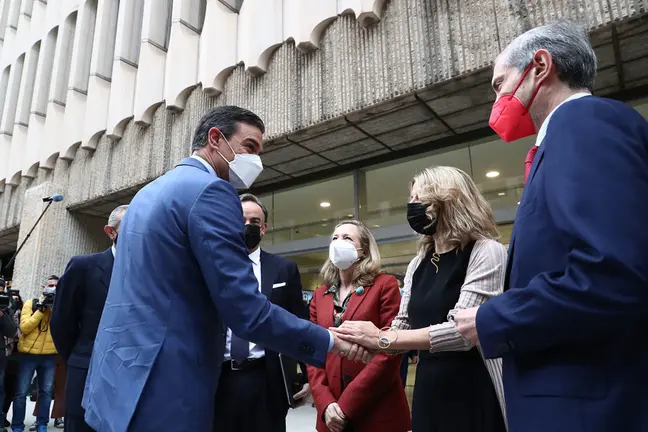The Spanish Council of Ministers gave the green light on Tuesday to the draft of its controversial new Housing Law.
This is the first attempt made by a Spanish government to regulate the housing market. But the bill approved on Tuesday, which will now be sent to Parliament for processing, was born amid the rejection of landlords and tenants.
Nobody seems happy with the draft law.
Homeowners consider the regulation an interference by the government in the free housing market, which endangers investment in Spain. For tenants, however, the draft law prepared by the government is not ambitious enough. They say it will be "insufficient" to alleviate the urgent need for affordable housing in Spain.
The draft law, which has so far garnered little support from political groups outside the coalition government PSOE-Podemos, has also sparked outright rejection from right-wing opposition parties.
Some regional governments controlled by them, including that of Madrid (where the right-wing People's Party governs), have said that they do not intend to apply the new law.
The key aspects of the controversial bill are as follows:
Large homeowners
For the first time, a Spanish law officially defines what large homeowners are: "Private persons or legal entities (companies) who own more than 10 urban properties for residential use or a constructed area of more than 1,500 square meters for residential use, excluding garages and storage rooms."
The most controversial aspects of the law are aimed precisely at large landowners. This is the case, for example, of measures to limit rental prices.
The owners feel that the law marks them as guilty of the increase in market prices and the tensions in certain areas.
Stressed market areas
The bill says that the authorities with jurisdiction over housing may declare certain areas as "stressed residential market areas" for a period of 3 years.
The declaration of 'stressed area' will occur, for example, when the cost of the mortgage or rent (plus utility costs) exceeds 30% of the average income of households in the area. Also if the purchase or rental price has risen in the last five years at least, 5% more than inflation.
Tax hike on empty houses
With the aim of increasing the supply of rental housing, especially in the so-called stressed market areas, the law empowers municipalities to apply a surcharge of the Real Estate Tax (Impuesto de Bienes Inmuebles, IBI) on empty houses.
This surcharge can reach up to 150%, according to the bill.
The additional tax hike will be 50% when, without just cause, the home has been empty for more than two years and belongs to an owner who has four or more properties for residential use. The increase will be 100% when they are three years. The percentage of increase can be adapted according to the period of time that the house has been empty. The tax can be raised an additional 50% in the case of properties whose owners have two or more apartments in the same municipality.
Affordable housing
The law legally defines what is "incentivized affordable housing" (vivienda asequible incentivada, in Spanish).
"Affordable incentivized housing" shall be considered private housing to which the authorities grant urban, tax or any other kind of benefits, in exchange for dedicating them to rental housing for low-income people.
Tax benefits for small owners
People considered 'small owners' can benefit from 90% tax discounts in the Personal Income Tax (IRPF) if they lower the price of their rental homes.
This maximum discount will be applied if the owner decides to lower his tenant's rent by 5% compared to the previous contract.
The bill also includes discounts of 70% if the owner rents for the first time a home within the price indexes for stressed areas, and does so to a young person between 18 and 35 years old. There are also discounts of 70% for houses for social rent at low prices.
Social housing fund
The regulations establish the creation of a social housing fund aimed at strengthening the availability of public housing.
In its explanatory memorandum, the bill emphasizes that the stock of 290,000 Spanish public housing barely represents 1.6% of the 18.6 million households in the country. In France, Germany, the United Kingdom or Denmark they are 15%.
In order to increase this percentage, the law states that a minimum of 30% of new the housing developments will be dedicated to public housing.
A public price index
The bill establishes the creation of a public registry of rental contracts, which together with other registries could be used to develop a system of reference indexes of rental prices.
Protection against evictions
The bill also establishes protection mechanisms against evictions for people in vulnerable situations.










